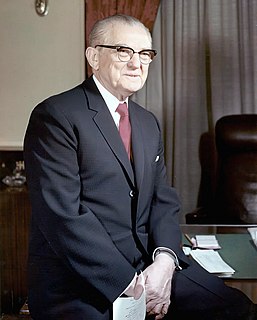A Quote by Steve Hanke
If you squeeze and squeeze, and you don't allow the Iranians to sell any oil, then what do they have to lose by shutting the Strait of Hormuz down? And if they do that, that's 35% of all the world's oil that comes through the strait and 20% of the liquefied natural gas in the world.
Related Quotes
Oil is a tangible commodity, so there is a global market. The fact that we may need less may affect the global price because we're big consumers: we probably take about a quarter of global demand. But if suddenly, let's just use a crazy example, fighting in the Middle East led to the closure of the Strait of Hormuz and no oil could get out through the Strait of Hormuz, well that would affect China, India, Europe, it will affect the whole global economy. It will affect us, too, then.
Venezuela has the biggest oil reserves in the world. And the biggest gas reserves in this hemisphere, the eighth in the world. Venezuela was a U.S. oil colony. All of our oil was going up to the north, and the gas was being used by the U.S. and not by us. Now we are diversifying. Our oil is helping the poor.
If you say the world is totally dependent on oil in many parts of the world, coal and certainly natural gas, we are fossil fuel, that is modernity, modernity has two elements: individualism and oil. Now to move toward a more enlightened sustainable world, we have to transform with lots of technology, with even differences in the way we see the world and how we live in the world. That`s going to take decades.
Then there is another area of activity - economic interaction between Russia and the United States. Right now, for example, it has already been made public that we signed a large deal to privatise one of our biggest oil and gas companies, Rosneft. We know for sure that US companies, as well as Japanese ones, by the way, are keenly interested in cooperation in Russia's oil and gas sector, in joint work. This has immense significance for world energy markets and will directly affect the whole world economy.
About 75% of the price of gas is really dictated by crude oil. At the heart of the issue is increasing demand over a period of many years around the world. World crude oil consumption now is close to 90 million barrels a day. Most of the growth in demand is coming from China and the developing world.




































